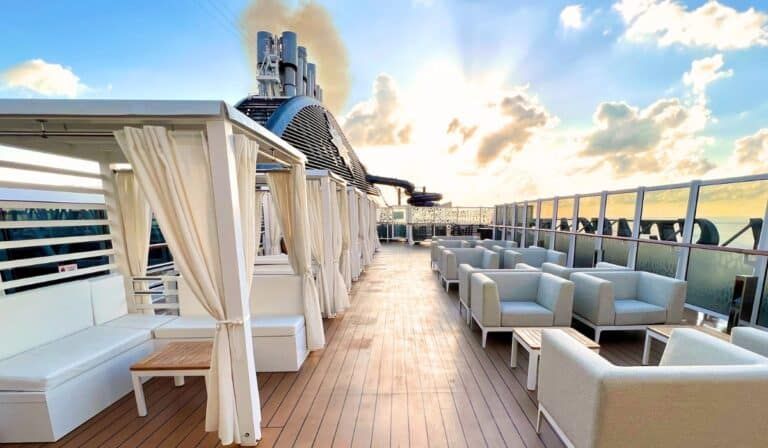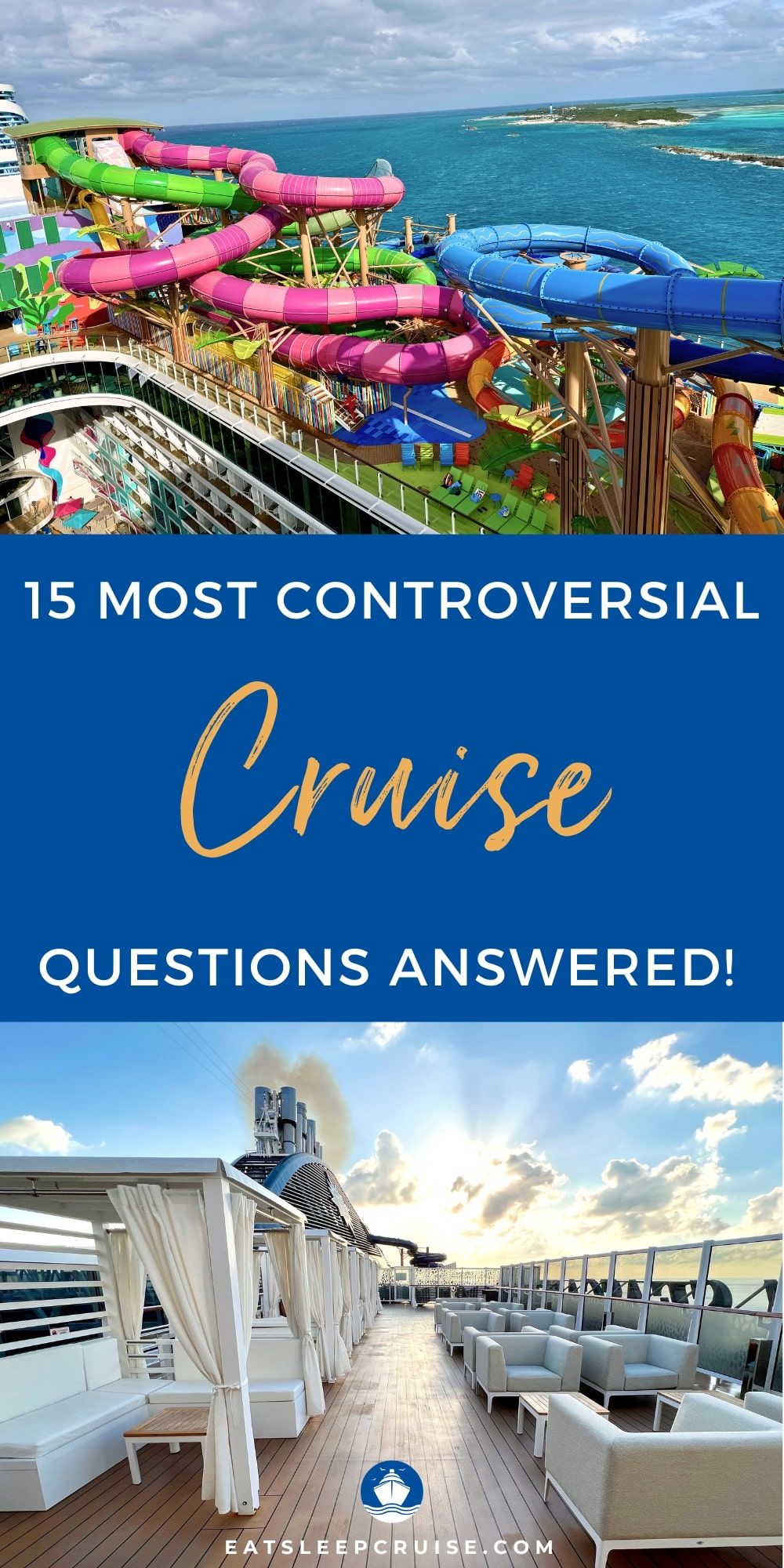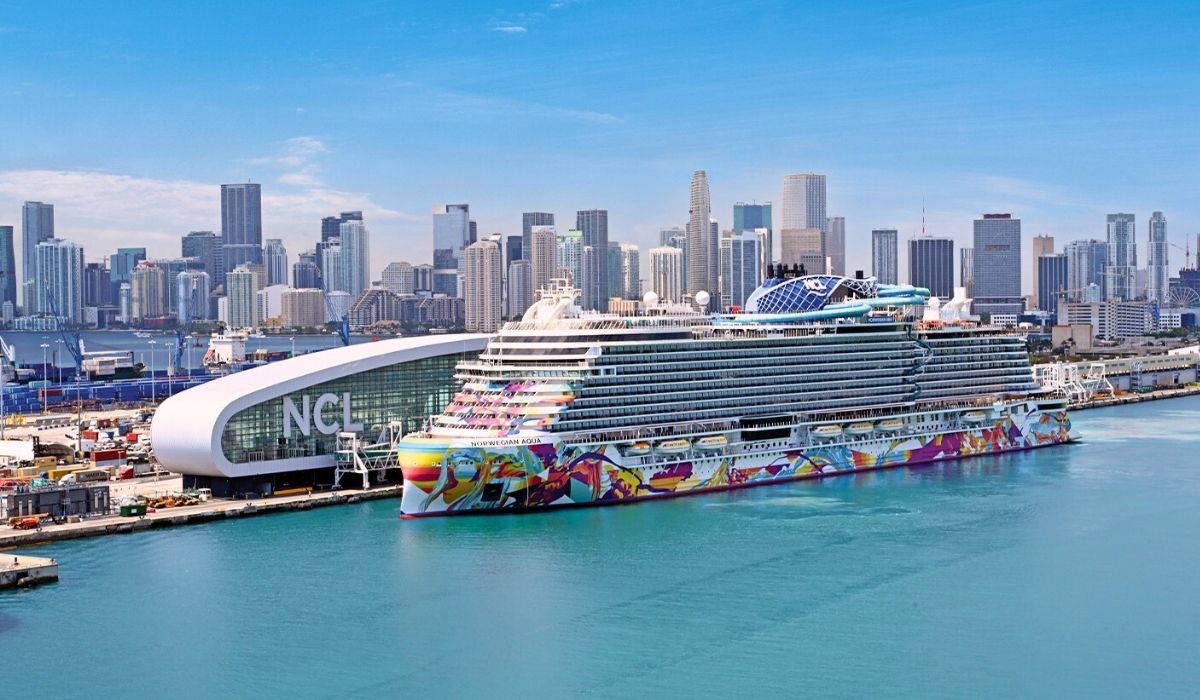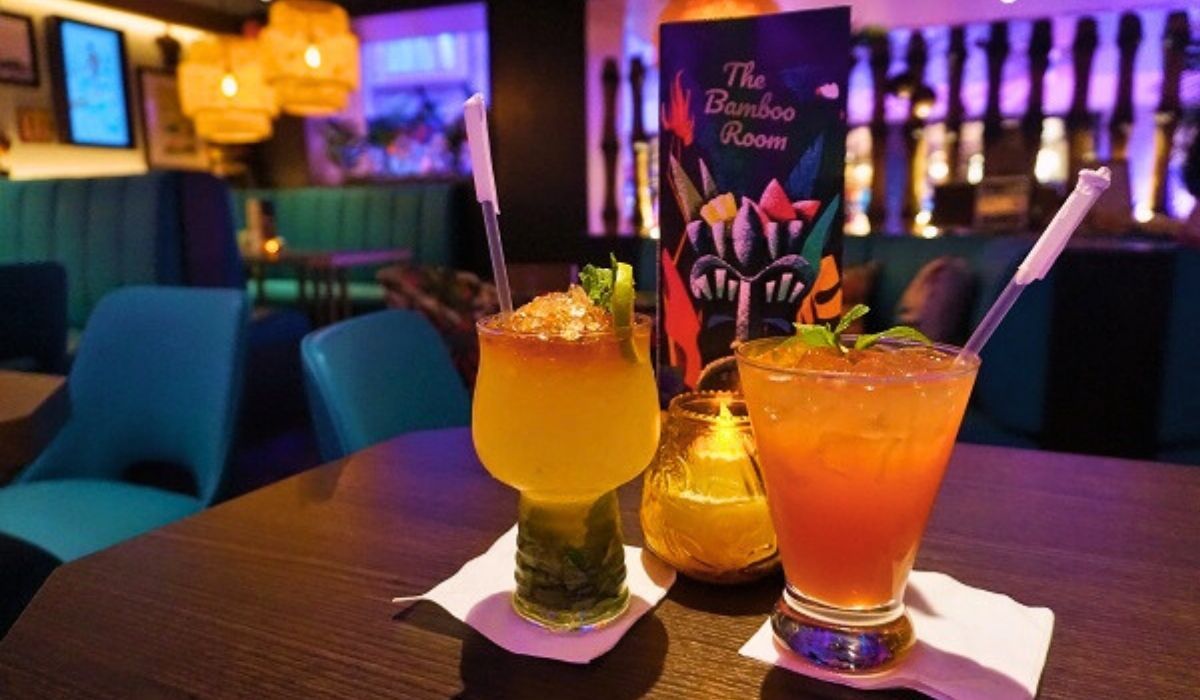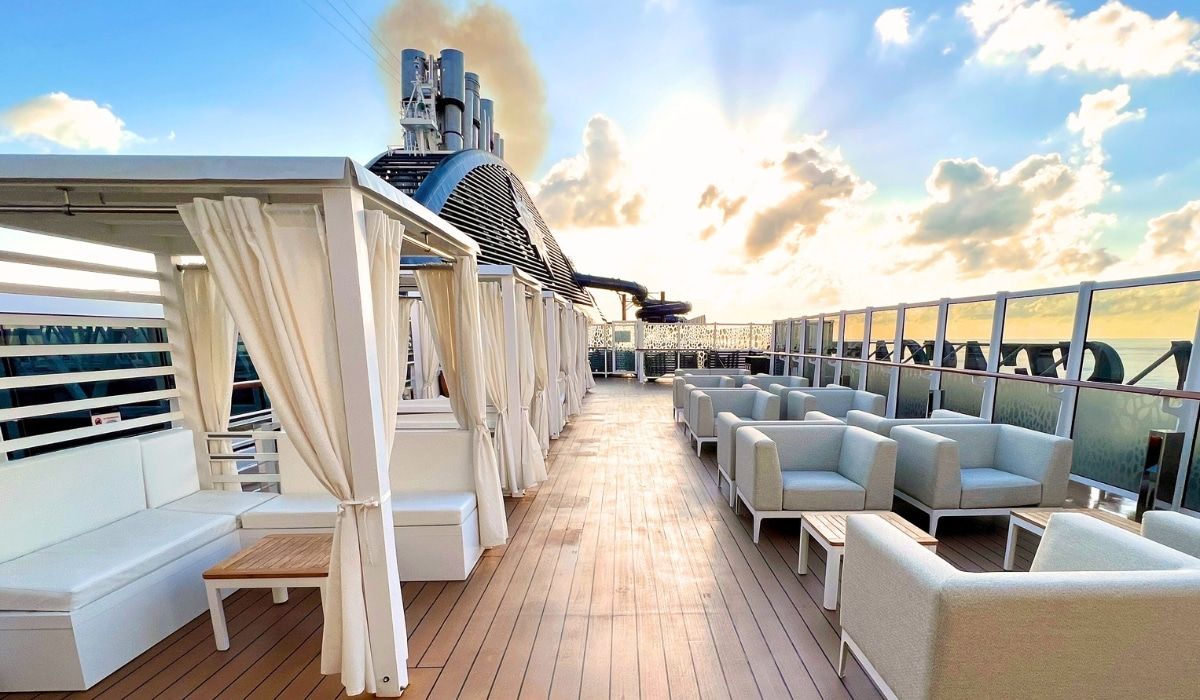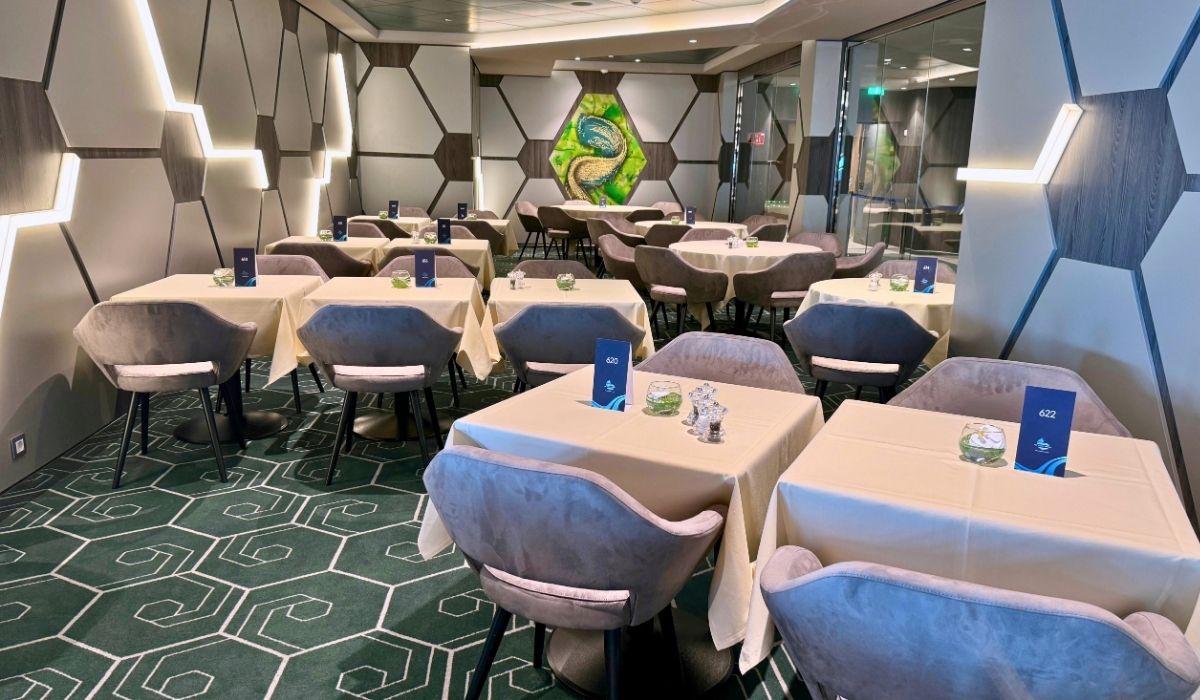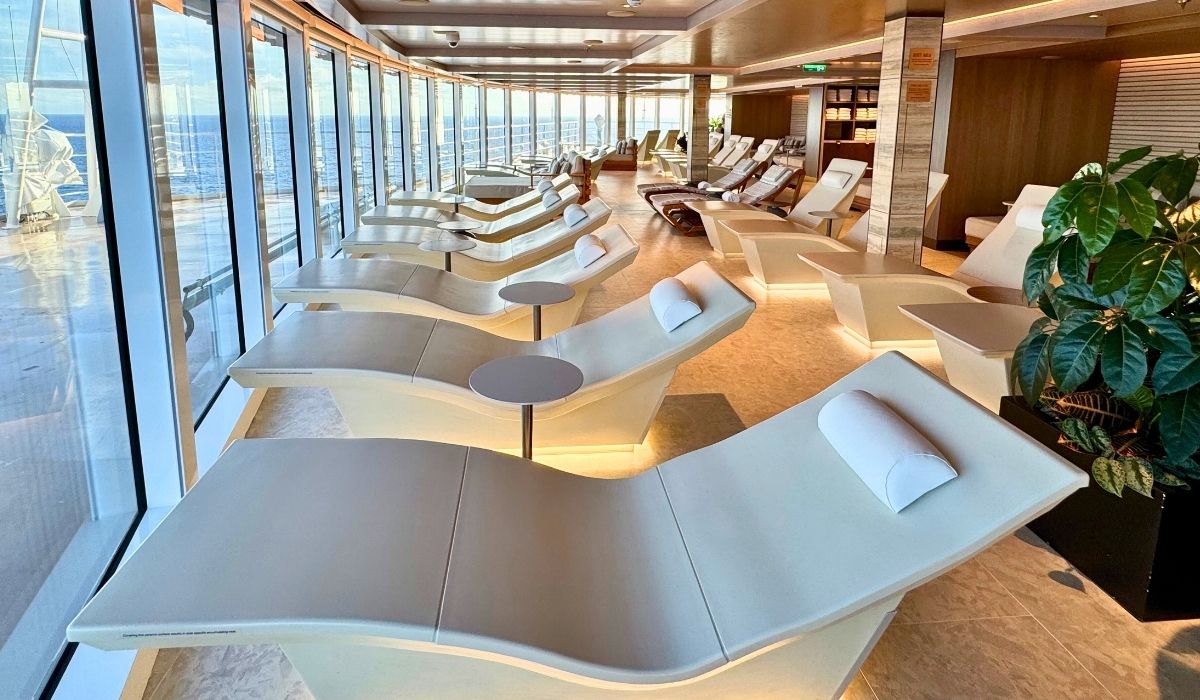Cruising is a popular vacation choice as it offers something for every type of traveler—from serene ocean views and relaxation to first-class entertainment to unique attractions and experiences. However, as much as cruising is loved by millions, there are also many aspects of it that are hotly debated. And the cruising community is not shy about voicing opinions on these issues. So, we dive into some of the most controversial cruise topics that are constantly making waves.
Whether you’re a seasoned expert or a first-time cruiser, these debates will probably resonate with you. So, let us know where you stand on these controversial cruise questions. We’d love to hear from you.
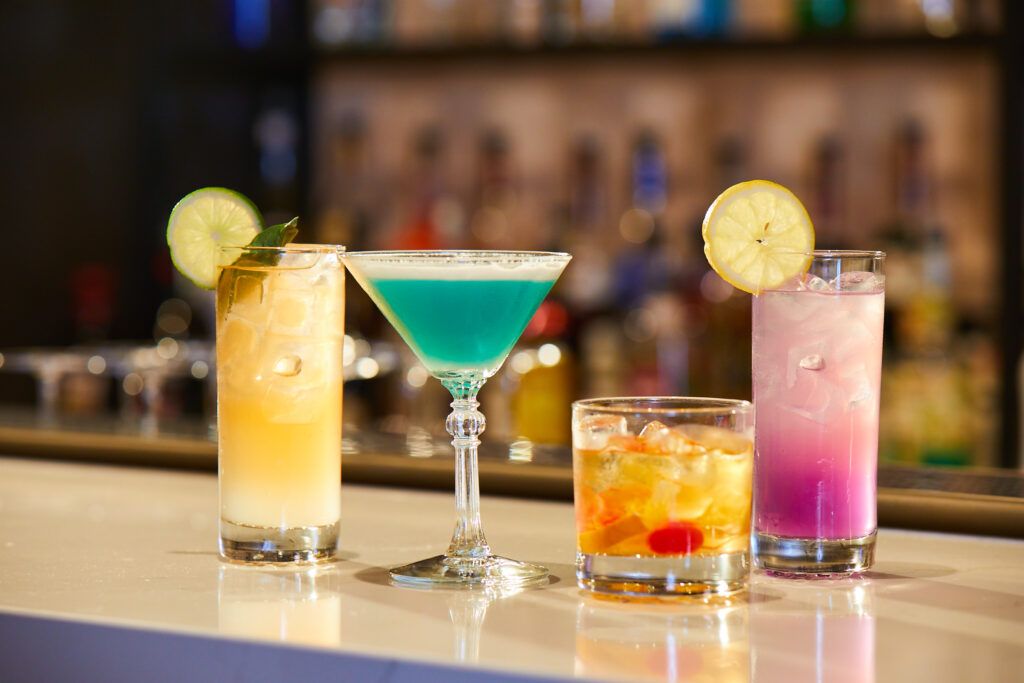
These Are the 15 Most Controversial Cruise Topics
1. The Great Tipping Debate
Few topics in the cruise world divide people quite like tipping. Most cruise lines automatically add gratuities to your onboard account, typically ranging from around $14 all the way up to $25 per person, per day. While some cruisers feel this is a fair way to compensate the hardworking staff, others believe tips should be discretionary and based on service quality.
Pro-Tipping Arguments:
- The cruise staff, from room stewards to dining servers, work long hours away from home, often for lower base pay. Tips are essential to their livelihood.
- Automatic gratuities ensure that all staff, including those working behind the scenes, receive a fair share of the tips.
Anti-Automatic Tipping Sentiment:
- Some argue that automatic tips undermine the value of exceptional service, making gratuities feel more like a surcharge than a reward.
- Certain cruisers prefer the personal touch of handing out cash tips directly, ensuring their tips go to those who provided excellent service.
We always pay the automatic gratuities and recommend that other cruisers do not remove them from their onboard accounts either. To reward exceptional service, we will tip above and beyond these mandatory gratuities.
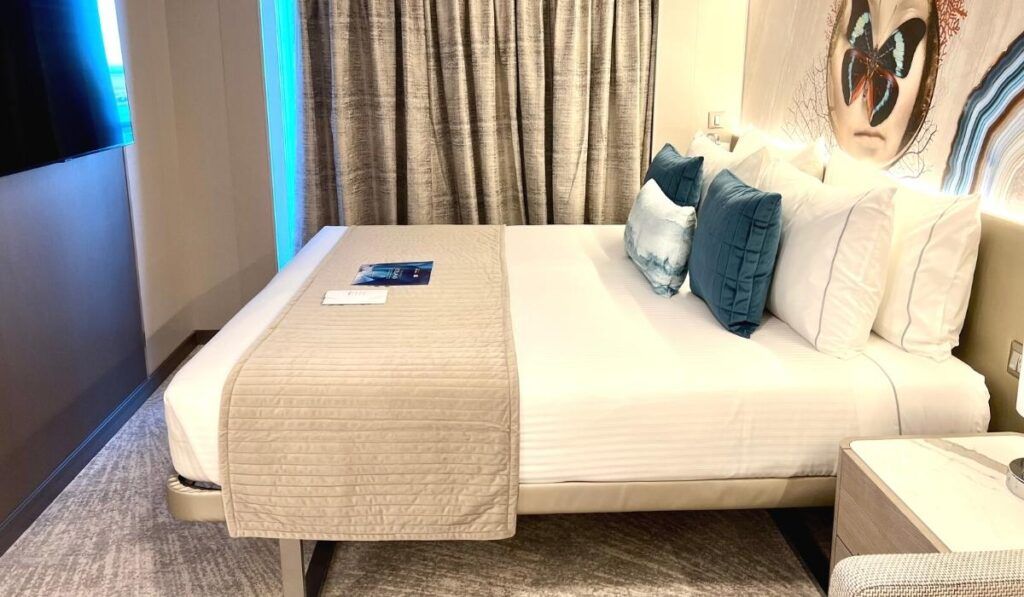
2. Dress Codes: To Formal Night or Not?
Formal nights on cruise ships used to be an elegant, must-attend event, where passengers donned tuxedos, gowns, and their best attire. However, in recent years, the appeal of formal nights has become a topic of contention. It’s even a debate between the two of us. While I love getting dressed up for these evening chic nights, Don would rather forego the suit or sports coat.
Traditionalists’ Perspective:
- For many, formal nights are a key part of the cruise experience, offering a chance to dress up and enjoy a sophisticated evening of fine dining and entertainment or the Captain’s reception with some bubbly.
- These cruisers argue that adhering to formal attire elevates the atmosphere and maintains the luxury and tradition of ocean travel.
The Casual Approach:
- A growing number of cruisers feel that dress codes are outdated and restrictive. They prefer a more relaxed vacation where they can be comfortable and not worry about packing special attire.
- Some cruise lines have already relaxed their formal night dress codes, allowing guests to skip the glitz without any guilt.

3. Mega-Ships vs. Smaller Ships: Which Offers the Better Experience?
The rise of mega-ships like Royal Caribbean’s Icon of the Seas has sparked another debate: Is bigger really better? These massive floating cities can accommodate over 5,000 passengers and offer every amenity imaginable, but some cruisers feel the experience is too impersonal. Having sailed on both large and small cruise ships, we think that each has its place and it really depends on the type of vacation you are seeking.
The Case for Mega-Ships:
- Mega-ships offer an array of onboard activities, from water parks and zip lines to Broadway-style shows and gourmet dining. They’re perfect for families and multi-generational groups with varying interests. Mega-ships are really the destination themselves.
- The scale of these ships allows for a greater variety of dining and entertainment options, often included in the base fare, making it a good vacation value.
Smaller Ship Advocates:
- Fans of smaller ships argue that these vessels provide a more intimate, relaxed, and personalized cruising experience. They often have easier access to smaller, more remote ports that the large ships can’t reach.
- Smaller ships generally offer fewer crowds, shorter lines, and more interaction with the crew, contributing to a feeling of exclusivity and luxury.
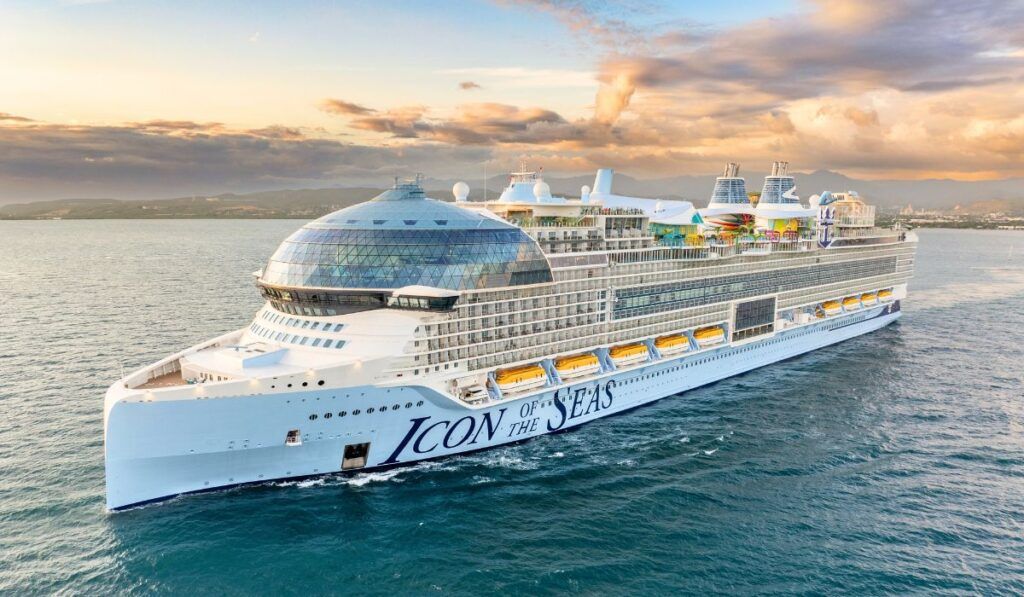
4. Are Beverage Packages Worth It?
We can’t talk controversial cruise questions without bringing up drink packages! While beverage packages have become a standard offering on most cruise lines, opinions vary widely on whether they’re worth the investment. This is especially true now as the prices for drink packages have skyrocketed on many cruise lines.
Even for us, we often flip-flop on this decision, depending on the price and our loyalty perks with the cruise line. For instance, we are Diamond Plus in Royal Caribbean’s Crown & Anchor Society which entitles us to five free drinks per day. Thus, we no longer purchase a beverage package with this cruise line.
Pro-Beverage Package:
- Unlimited drink packages allow passengers to enjoy cocktails, beer, wine, and specialty coffees without worrying about racking up an expensive tab. It also offers added convenience knowing that you can pre-pay for all these expenses.
- For passengers who plan to indulge frequently in alcoholic and non-alcoholic beverages, these drink packages can often provide significant savings.
Against Beverage Packages:
- Critics argue that beverage packages are overpriced and a waste of money, especially for those who don’t drink at least 5 alcoholic beverages a day or for those who prefer non-alcoholic options. This is especially true when one person in the cabin doesn’t drink alcohol as both guests are usually required to purchase.
- Some travelers feel pressured to drink more to “get their money’s worth,” which can lead to over-consumption and detract from the overall cruise enjoyment.
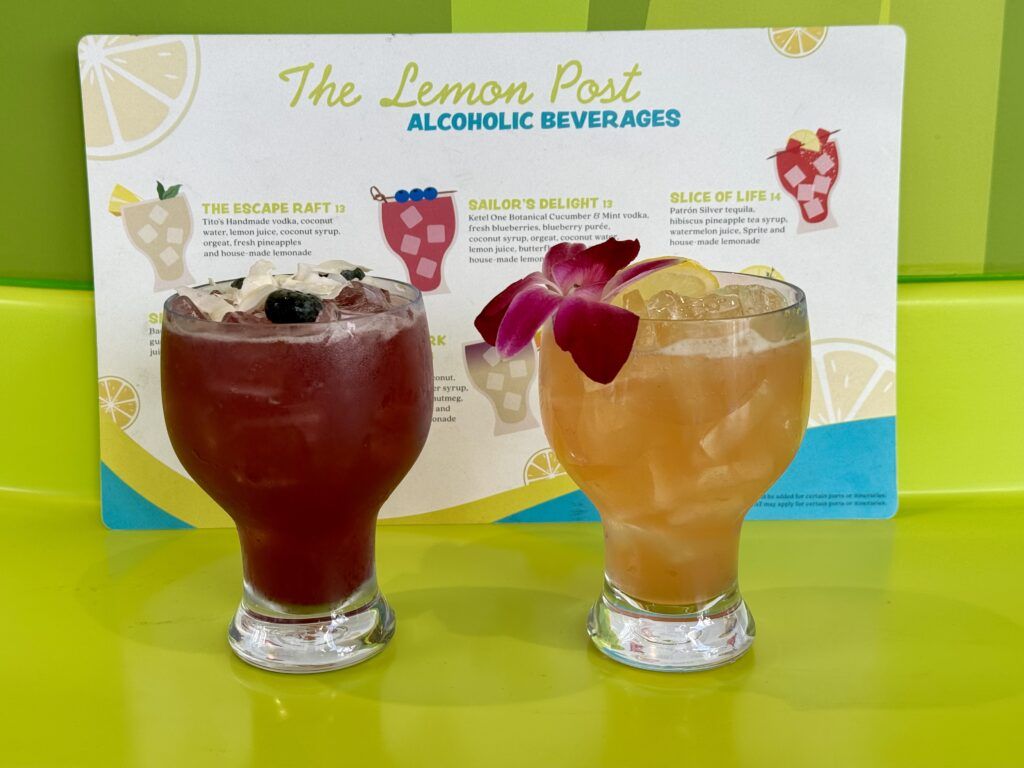
5. Port Day vs. Staying Onboard: What’s the Best Use of Your Time?
Should you head ashore and explore when the ship docks, or take advantage of a quiet ship while everyone else is off enjoying the port of call? We like to mix it up and reserve at least one port day to stay on the ship. We try to pick a port that we’ve visited before or one that doesn’t offer any tours or activities that interest us.
Pro-Port Day:
- Many argue that the whole point of a cruise is to visit new places and immerse yourself in local cultures. Missing out on port days means losing a chance to experience different destinations. These guests often book the cruise specificially for the itinerary.
- Shore excursions (whether booked through the cruise line or on your own) provide a once-in-a-lifetime opportunity to see iconic landmarks and natural wonders all over the world.
Staying Onboard:
- On the flip side, some cruisers enjoy the peace and quiet of an empty ship. With fewer people around, they can enjoy the pools, the ship’s one-of-a-kind attractions, and other amenities like the spa without the usual crowds. These guests usually book the cruise specifically for the ship.
- Skipping excursions can also be a money-saving strategy, as shore excursions often come with an additional cost that can get quite pricey in some destinations like Alaska and the Mediterranean. Though, you don’t have to book an excursion to get off the ship; you can just walk around on your own.
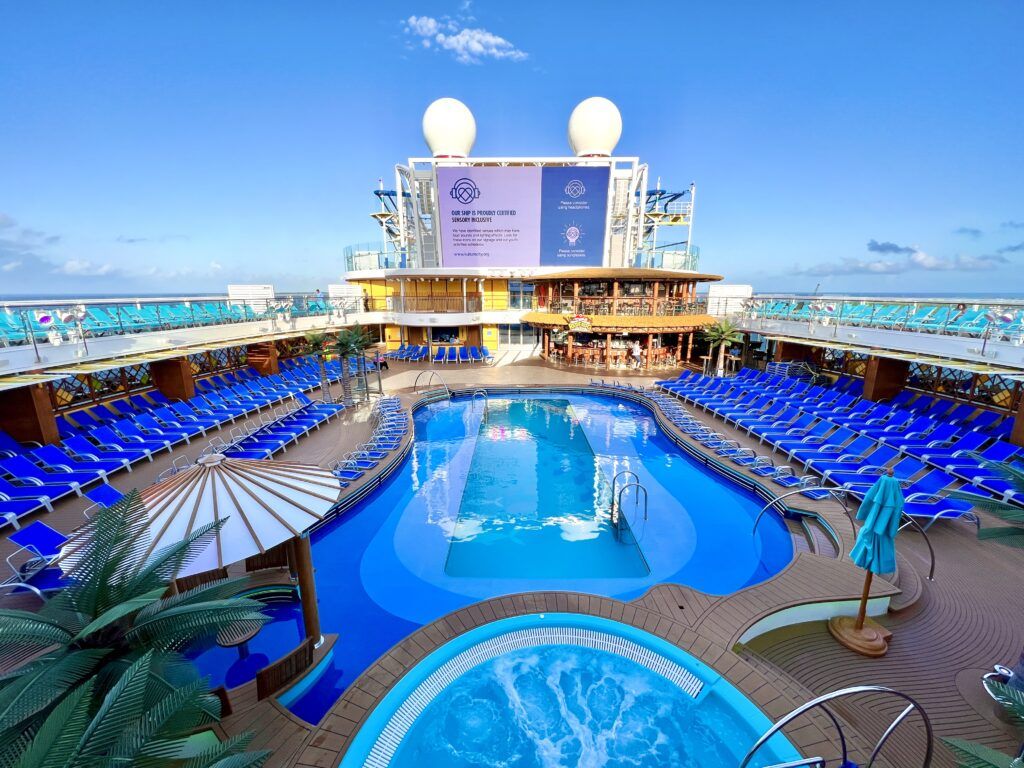
6. Are Cruise Excursions a Rip-Off?
If you do decide to go ashore, should you book your tours with the cruise line? Cruise line-organized shore excursions often cost significantly more than booking similar activities independently. This leads to another debate over whether they’re worth the premium price.
For us, it really comes down to the tours offered in a particular port of call. We’ve booked directly with the cruise line, with third party vendors like Shore Excursions Group, or with local companies directly. There are pros and cons to each, so it depends what is most important to you.
Pro-Excursions:
- Booking through the cruise line ensures a seamless experience, with the added benefit of knowing the ship won’t leave port without you if the excursion runs late. This is probably the number one reason cruisers continue to book with the cruise line.
- Excursions organized by the cruise line come with a level of safety and assurance as well, especially in unfamiliar destinations. These companies are vetted by the cruise line and obligated to uphold certain standards.
DIY Approach:
- Independent travelers argue that you can save a lot of money and avoid crowds by booking your own excursions or exploring ports on your own. These cruisers prefer the flexibility of creating their own itinerary rather than sticking to the structured schedule of a cruise-organized tour.
- When booking with a third party vendor or local tour company, guests often get smaller group sizes and more authentic experiences. Some companies also offer guarantees that they will get you back to the ship on time or cover the costs to get you to your next port of call.

7. Is Cruise Line Loyalty Worth It?
Another hotly debated topic among frequent cruisers is whether it’s beneficial to stay loyal to a single cruise line or explore different ones. Most major cruise lines offer loyalty programs, rewarding repeat passengers with perks like priority boarding, free upgrades, and onboard discounts. But is sticking with one brand really worth it, or are you missing out on better options by not shopping around?
The Case for Loyalty:
- The more you sail with a specific cruise line, the more rewards you earn. These loyal perks can include free WiFi, free drinks, room upgrades, and access to exclusive events like cocktail parties or private lounges. For cruisers who sail multiple times a year, the rewards can add up and greatly enhance their onboard experience.
- Familiarity is also a big factor for sticking with the same cruise line. Loyal cruisers often appreciate the consistency in service, food, and entertainment that comes with sticking to the same brand. They know what to expect, from dining options to cabin layouts, and they feel at home onboard.
- Some cruise brands even offer loyalty perks that cross-over to sister brands. For instance, Royal Caribbean, Celebrity Cruises, and Silversea loyalty tiers apply across the three lines.
The Case Against Loyalty:
- On the flip side, if you remain loyal to one cruise line, you are missing out on other experiences that you may enjoy just as much or even more. Sticking to one cruise line may limit your exposure to new and innovative experiences offered by other brands.
- Some cruise lines excel in specific regions. Diversifying your cruise experiences allows you to choose the best line for each destination and itinerary.
- Even those who were once loyal to a cruise brand may argue that over the years cruise lines have reduced the number of perks making it less advantageous to limit themselves to just one cruise line.
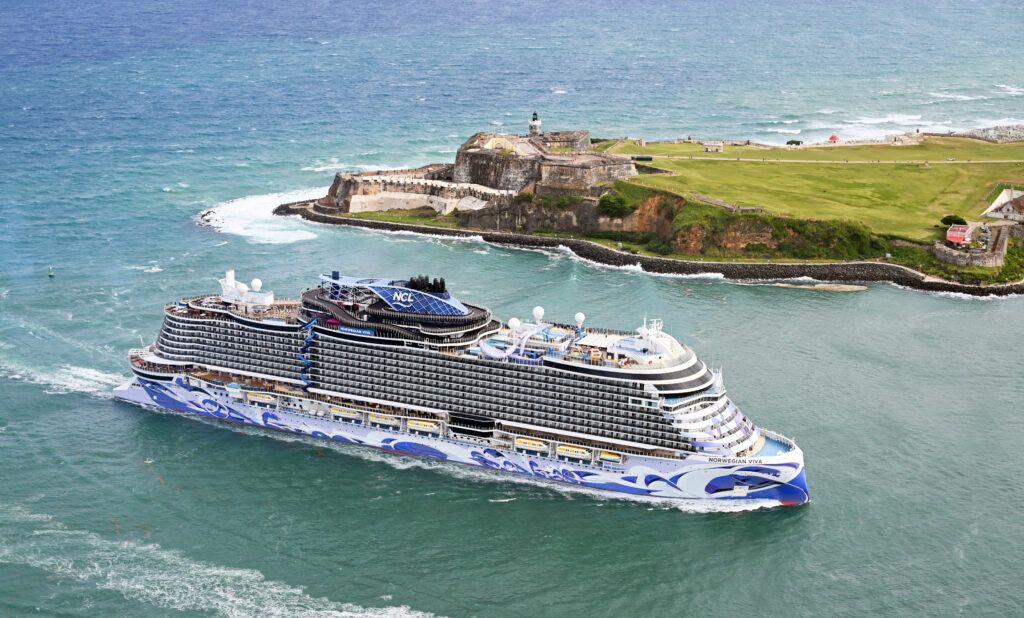
8. Traditional Dining vs. Anytime Dining: Which Is Better?
Another one of the most controversial cruise topics is whether traditional dining or anytime dining offers the better mealtime experience. Many cruise lines give passengers the choice between set dining times or flexible dining schedules, and each option has its devoted fans.
This is a tough one for us as we prefer the flexibility of dining times but enjoy the consistency of waitstaff and service which comes with traditional dining. More recently, we tend to book anytime dining and request to be sat in the same section on subsequent evenings.
The Case for Traditional Dining:
- For some cruisers, the predictability of traditional dining is a huge perk. With set dining times, passengers know exactly when and where they will eat every night, which allows them to plan their evenings accordingly.
- Traditional dining allows passengers to have the same table, dining companions, and waitstaff each night. This can lead to more personalized and consistent service, as the waitstaff gets to know your preferences.
The Case for Anytime Dining:
- On the flip side, anytime dining gives passengers the freedom to eat whenever they want, allowing them to adapt their dining schedule to their daily activities. Whether you’re returning late from an excursion or prefer to dine at different times each day, the flexibility can be a major advantage.
- With anytime dining, there’s no pressure to adhere to a strict schedule. Passengers can enjoy other activities, shows, or shore excursions without worrying about missing their reserved dinner time.
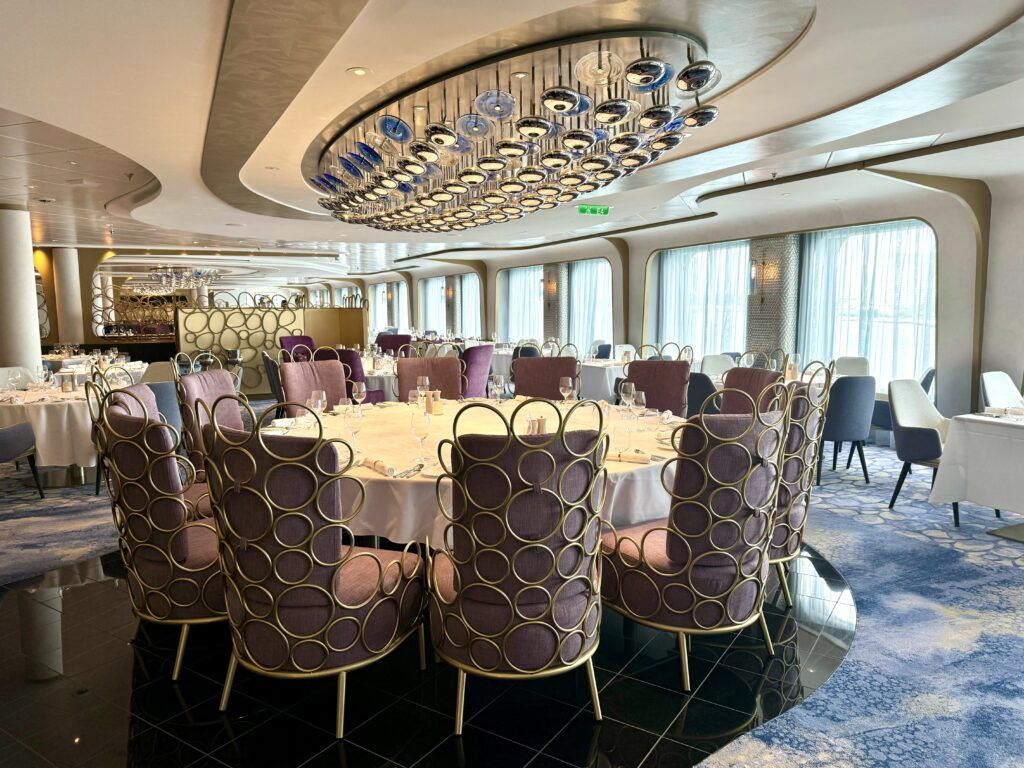
9. Is Upgrading to a Balcony Cabin Worth It?
One of the most common decisions cruisers face is whether to splurge on a balcony cabin or save money by booking an interior room. The debate over whether a balcony cabin is worth the cost is one that divides the cruising community, sometimes even based on specific itineraries.
Though, this is one of the controversial cruise questions where we’re firmly on the balcony side of the fence. We booked our first balcony cabin on an Alaska cruise ten years ago, and we haven’t been back to an inside room since!
The Case for Balcony Cabins:
- One of the biggest draws of a balcony cabin is having your own private outdoor space for the fresh air and the views. Whether it’s enjoying a morning coffee with the ocean breeze or watching the sunset from your own deck, many cruisers find the experience of having a personal slice of the sea to be priceless.
- Balcony cabins are often larger than inside and oceanview rooms as well, offering more space to relax. This can be especially appealing on longer cruises where having room to spread out becomes more important. The extra space and natural light can also make the cabin feel less claustrophobic.
The Case Against Balcony Cabins:
- One of the main arguments against balcony cabins is the price. Balconies can add a significant amount to the total cost of your cruise, and some argue that the time spent in the cabin doesn’t justify the added expense, especially if you plan to be out and about enjoying ship activities. Plus, you can get the same views from the ship’s public decks, and new ships offer more and more “observation” spaces.
- On colder itineraries, such as Alaska or Northern Europe, you may not be able to use your balcony as much due to chilly temperatures or bad weather. In these cases, some cruisers feel that paying extra for a balcony isn’t worthwhile.
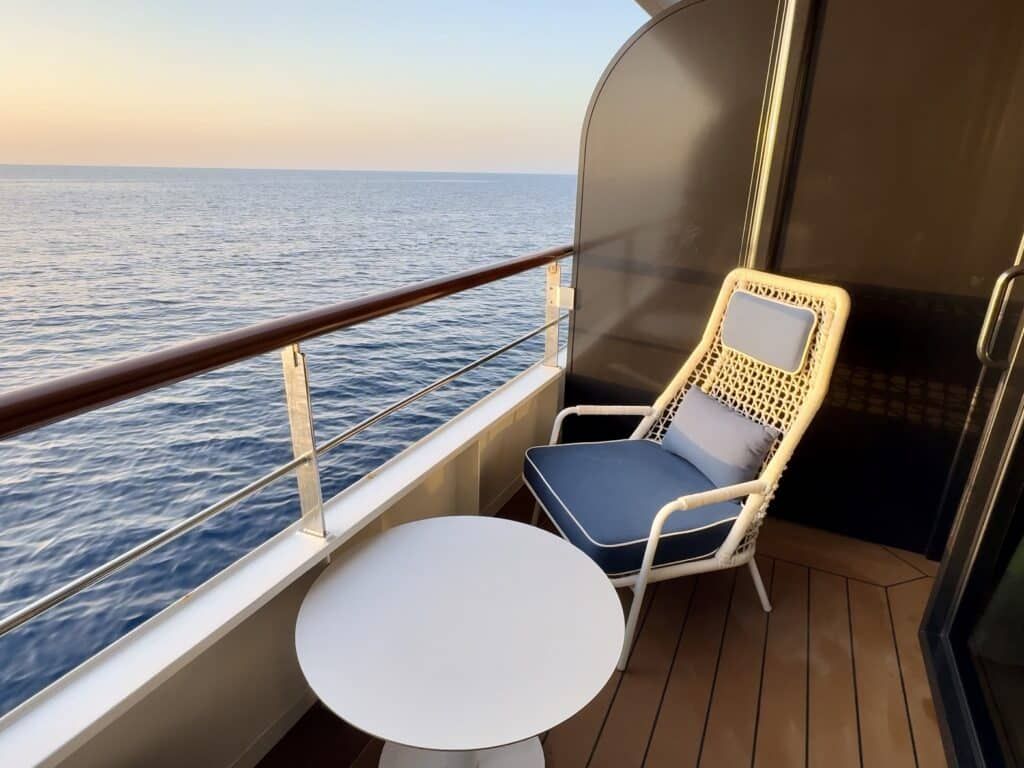
10. The Cruise Ship WiFi Controversy
Another controversial cruise question is whether or not to purchase WiFi on a cruise. While some argue that they are going on a cruise to disconnect, others find it essential to stay connected while traveling. The cost and quality of cruise ship WiFi is a sore spot for many passengers too. While some accept the high prices and slow speeds as part of being at sea, others feel that better options should be available in the digital age.
And we won’t even get into the debate of whether or not the cruise lines should provide such WiFi for free to all guests.
Complaints:
- Cruise ship WiFi is notoriously slow and often unreliable especially in more remote destinations, frustrating passengers who need to stay connected for work or personal reasons.
- The cost of WiFi packages is typically high, leading to debates over whether the service is worth it, especially given its spotty performance and that many cell carriers offer international services that can be used when docked in ports of call.
Defenders:
- Supporters argue that cruising is about disconnecting from the world and enjoying the trip, so WiFi should not be a priority. As long as it works well enough to check in with family back home or check an occasional email.
- Advances in satellite technology are slowly improving onboard connectivity, and many cruise lines have begun offering packages with Starlink accessibility. Many also offer varying levels of WiFi connectivity from social media plans to streaming plans based on guests’ needs.
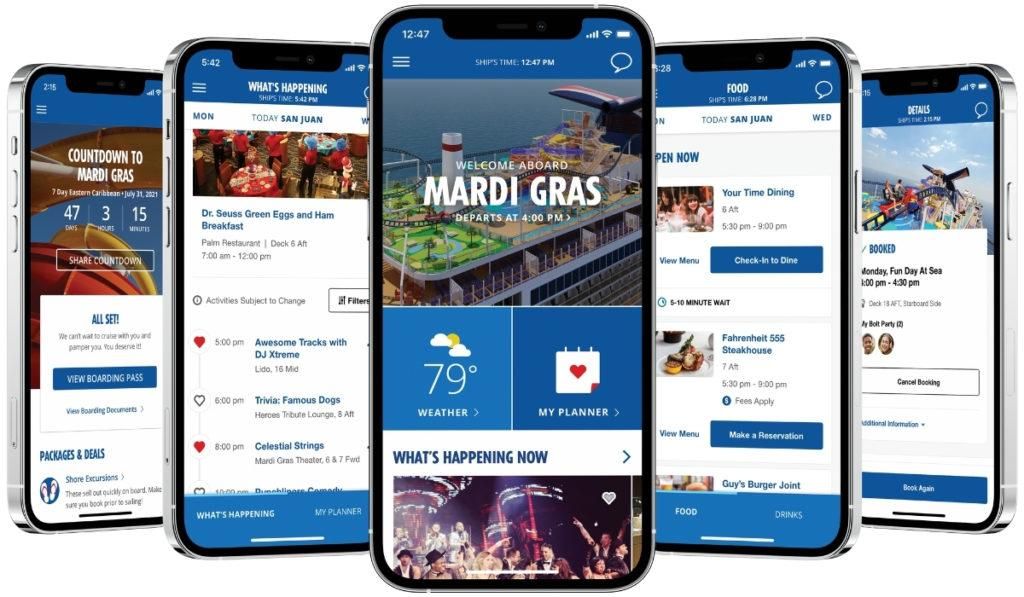
11. Was Cruising Better in the Past? Nostalgia vs. Modern Innovation
Among veteran cruisers, there’s a persistent debate about whether cruising has lost some of its charm over the years. Some argue that the “golden age” of cruising offered a more luxurious, personalized experience, while others believe that modern innovations have only enhanced the experience.
Cruisers often fondly remember midnight buffets and chocolate fountains, turn-down service, and the like. Yet still, some are willing to overlook these eliminated experiences for the thrills of racetracks and waterslides found on cruise ships of today. While we’ve only been cruising since 2007, we certainly notice the differences!
Nostalgia for the Past:
- Long-time cruisers often reminisce about the days when cruising was more elegant and exclusive, with fewer passengers per ship, more attentive service, and a stronger emphasis on tradition. This attention to detail created a sense of being pampered, which some feel has been lost in today’s mega-ship culture.
- There’s also a feeling that ships were less commercialized in the past, with less focus on upcharges for premium experiences. With fewer add-ons and less nickel-and-diming, passengers enjoyed a more all-inclusive experience.
Proponents of Modern Cruising:
- On the other hand, modern cruising offers an array of innovations that wouldn’t have been possible in the past. Newer ships come equipped with everything from water parks, zip lines, and virtual reality zones to state-of-the-art entertainment venues, bringing in younger generations and families.
- Cruise lines today cater to a wider range of interests and budgets, making cruising accessible to more people. Themed cruises, flexible dining options, specialty restaurants, and even ship-within-a-ship experiences have added layers of customization that didn’t exist before.
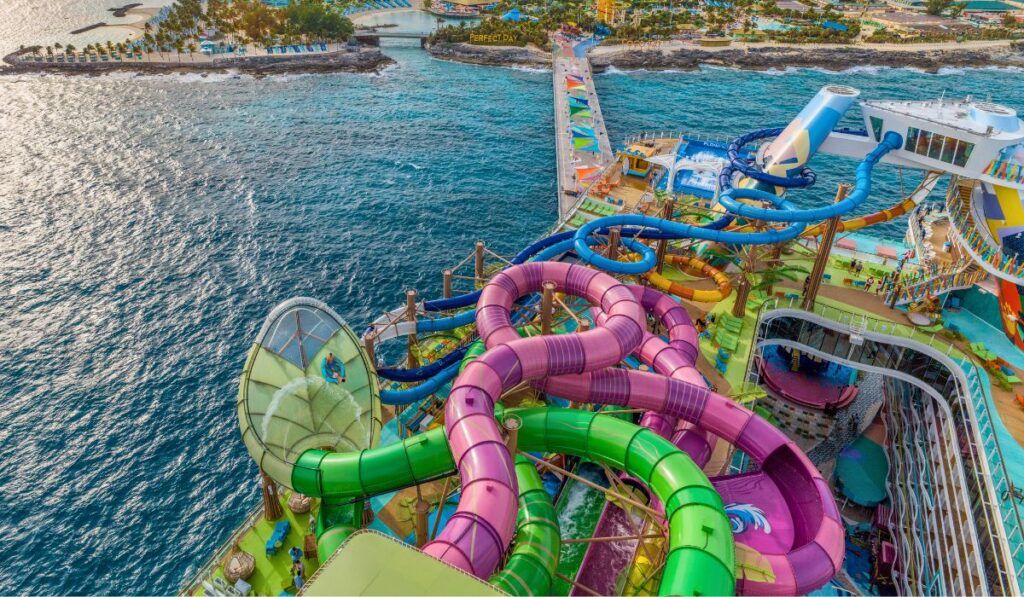
12. Which Cruise Line is the Best? The Never-Ending Debate
Few debates in the cruising community are as fierce as the question of which cruise line is the best. With numerous major cruise lines offering distinct experiences, it’s no surprise that passengers have strong opinions on which one stands out. Each cruise line does things a bit differently. Thus, it’s about determining which one is right for you.
We strongly believe there is no bad cruise. While it might be a bad fit for you, it could be the perfect fit for someone else.
Loyalists’ Views:
- Carnival fans praise the line for its “fun ship”-atmosphere, affordability, and family-friendly entertainment. Many argue that it offers great value, with a lively onboard vibe perfect for those who love casual, energetic vacations.
- Royal Caribbean is often hailed for its innovative ships, cutting-edge activities, and high-caliber entertainment. Fans point to features like rock climbing walls, ice skating rinks, and Broadway-style shows, positioning Royal Caribbean as the best overall option for families, couples, and multigenerational groups alike.
- Norwegian Cruise Line is beloved for its “Freestyle Cruising” concept, which ditches formal dining schedules and dress codes, allowing for more flexibility. Norwegian loyalists appreciate the laid-back vibe and diverse range of specialty dining options.
- Celebrity Cruises attracts those looking for a more premium, sophisticated experience. Known for its elegant design, Celebrity is favored by cruisers seeking a more luxurious vacation without the formality of ultra-luxury lines.
- Princess Cruises is great for traditionalists, offering refined service, classic itineraries, and a more relaxed atmosphere. Princess appeals to cruisers who value enrichment programs, scenic cruising, and a slower-paced vacation. This line has also become a leader in Alaska cruises.
- Disney Cruise Line has a die-hard fan base of families and Disney enthusiasts, who argue that it offers the best in family-friendly entertainment, themed dining, and character interactions, all while maintaining a high level of service and luxury that is a step above other contemporary cruise lines.
- Holland America Line also offers a more traditional cruise experience, known for its emphasis on culinary experiences, refined atmosphere and decor, enrichment and cultural offerings, and personalized service. The brand’s mid-sized ships allow for varied itineraries and more in-depth explorations of the world.
- MSC Cruises has a growing fan base, especially among cruisers looking for a European-inspired experience at sea. The line is known for its stylish ships (ie. Swarovski staircases), affordable luxury, diverse itineraries, and family-friendly environment.
- Virgin Voyages has shaken things up with their adults-only ships and trendy, unconventional experiences. Fans of Virgin argue it’s perfect for those seeking something different and rave about the onboard dining which is all included in the cruise fare.
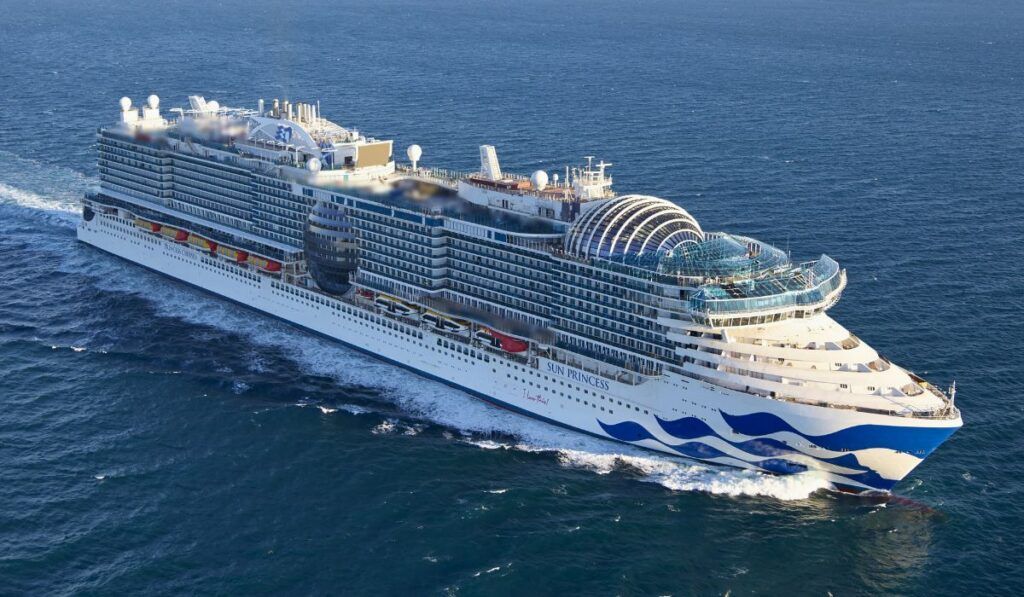
13. All-Inclusive vs. A La Carte Pricing
The pricing models of cruises can be a source of confusion and controversy. Some cruisers long for the days when “all-inclusive” truly meant that everything was part of the cruise fare. Today, most cruise lines offer a la carte pricing, especially for premium services, which can lead to sticker shock for some guests. It’s this nickel-and-diming that often gets the cruise community up in arms.
All-Inclusive Advocates:
- Proponents of the all-inclusive model argue that paying one price upfront for all services allows for a more convenient and stress-free experience. You don’t have to worry about racking up unexpected charges during the cruise. These are the types of passengers who tend to book with more premium and luxury cruise lines.
- While the initial price of an “all-inclusive” cruise might seem higher, many cruisers feel they are getting more value for their money because so much is included. When factoring in all the components like drinks, dining, excursions, and onboard activities, an all-inclusive cruise often offers excellent value compared to paying for each of those elements separately.
A La Carte Defenders:
- Others prefer the flexibility of a la carte pricing, allowing them to pay only for what they use. For example, someone who doesn’t drink alcohol shouldn’t have to pay for an all-inclusive drink package. This also offers a lower base fare for those on a budget.
- Some cruisers appreciate the ability to customize their cruise by selectively choosing only specialty dining, excursions, or spa services that they want allowing for a more personalized cruise experience. This approach also encourages mindful spending.
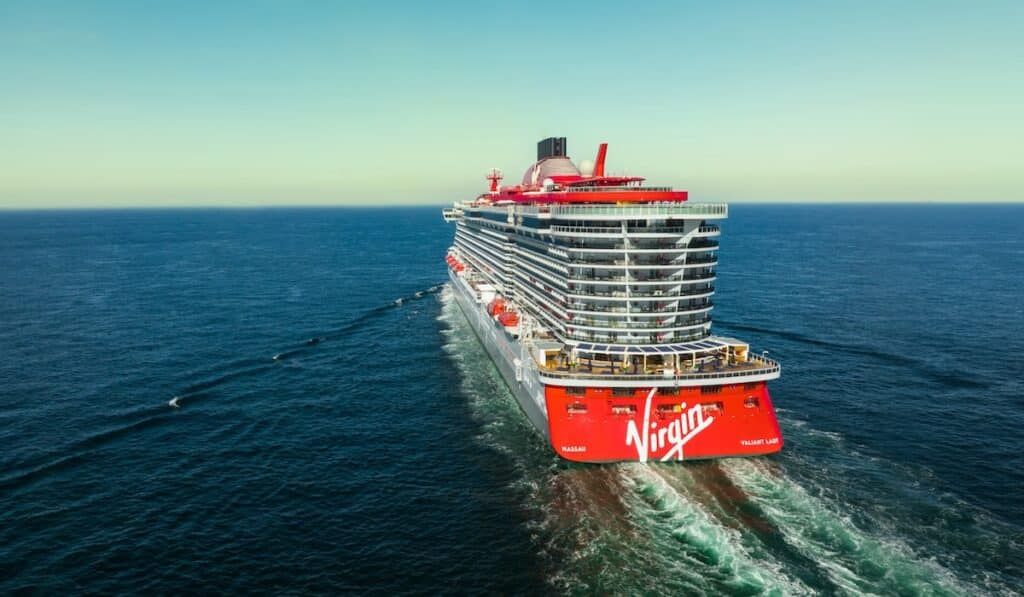
14. Children on Cruises: Family-Friendly or Adult-Only?
While many cruise lines market themselves as family-friendly, not everyone is happy about the presence of kids on board. The debate about whether cruises should be more adult-oriented or child-friendly is one that often divides the cruising community.
Should cruise lines have at least one ship that is adult-only? Should cruise lines have more adult-only venues? Yes, these are definitely controversial cruise topics! Still, coming from a couple who has no kids, we can see both viewpoints.
The Family-Friendly Camp:
- Families argue that cruising is one of the best vacation options for all ages, offering kids clubs, water slides, and family activities while still providing options for adults to relax. Multi-generational families can allocate time as a group and also time to enjoy what they individually love about the ship.
- Family cruisers enjoy the convenience of having everything in one place—entertainment, dining, and accommodation—which is especially important when traveling with children.
The Adult-Only Advocates:
- On the flip side, some cruisers are vocal about preferring adult-only spaces, feeling that children can detract from the peaceful atmosphere of a cruise. They are particularly concerned about noisy environments, crowded pools, and unsupervised kids.
- This has led to the rise of adult-only cruise lines like Virgin Voyages, as well as the growing popularity of adults-only zones on family-friendly ships. If you’d prefer a cruise line with fewer kids, there are more and more options available.
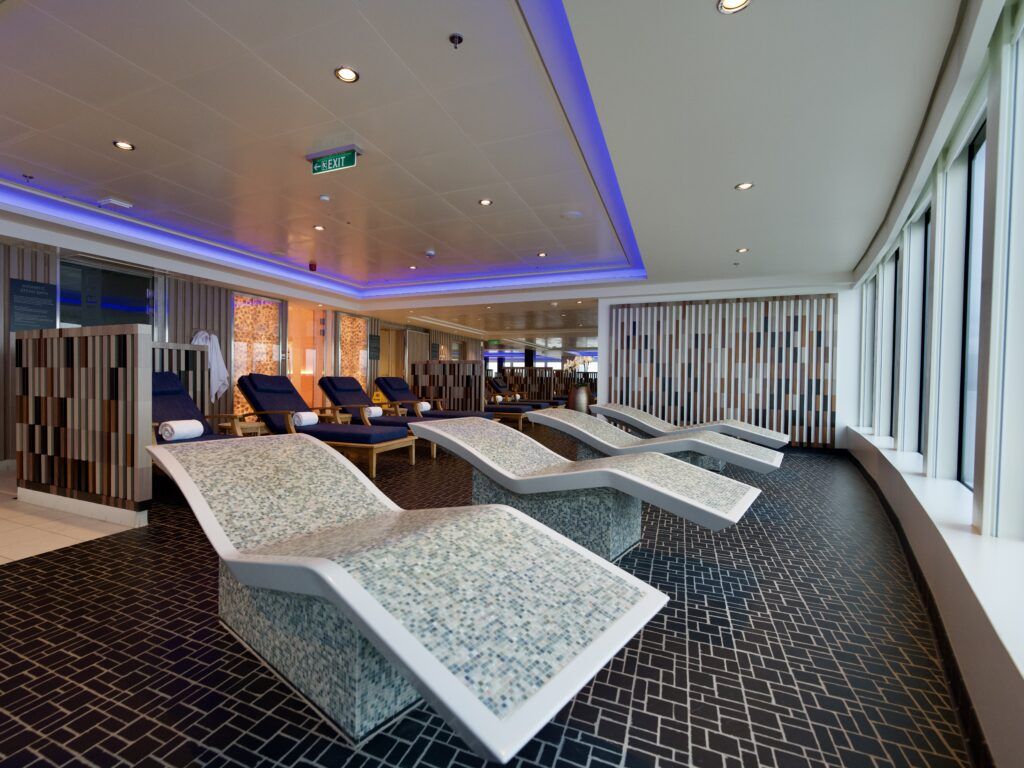
15. Solo Cruising: Is It Worth the Extra Cost?
While cruising is a great choice for families, it can also be a perfect vacation for those choosing to cruise solo. However, cruising alone comes with one big challenge, the dreaded “single supplement”. With most cruise fares based on double occupancy in a cabin, solo travelers often need to pay nearly double the fare to occupy a cabin meant for two. So, is it worth it?
Rising Popularity:
- Some cruise lines have started offering solo cabins that don’t require paying the single supplement, making it more accessible to those choosing to cruise alone. Some lines, like Norwegian Cruise Line, even offer dedicated spaces and activities for those cruising by themselves. This eases some of the social pressure, letting guests engage with others on their own terms.
- Solo cruising can be liberating, giving travelers complete freedom to set their own schedule. They can do what they want, when they want– which can be particularly appealing to those prioritizing relaxation and self-care during the trip. It’s also a great opportunity to socialize with like-minded travelers and make new friends along the way.
Challenges of Solo Cruising:
- The single supplement is an obvious burden for solo travelers, and even with more lines offering solo cabins the inventory is still limited. This means you’ll likely have to plan these vacations well in advance and/or have a good travel advisor in your corner.
- While many who travel solo are very gregarious, dining and participating in activities can sometimes feel awkward for those cruising alone. Safety going ashore in ports of call may also be a concern for solo cruisers.
Comments
Do you have any other controversial cruise topics to add to our list? Do you feel strongly about any of these hotly debated topics? Drop us an anchor below to share where you stand.


